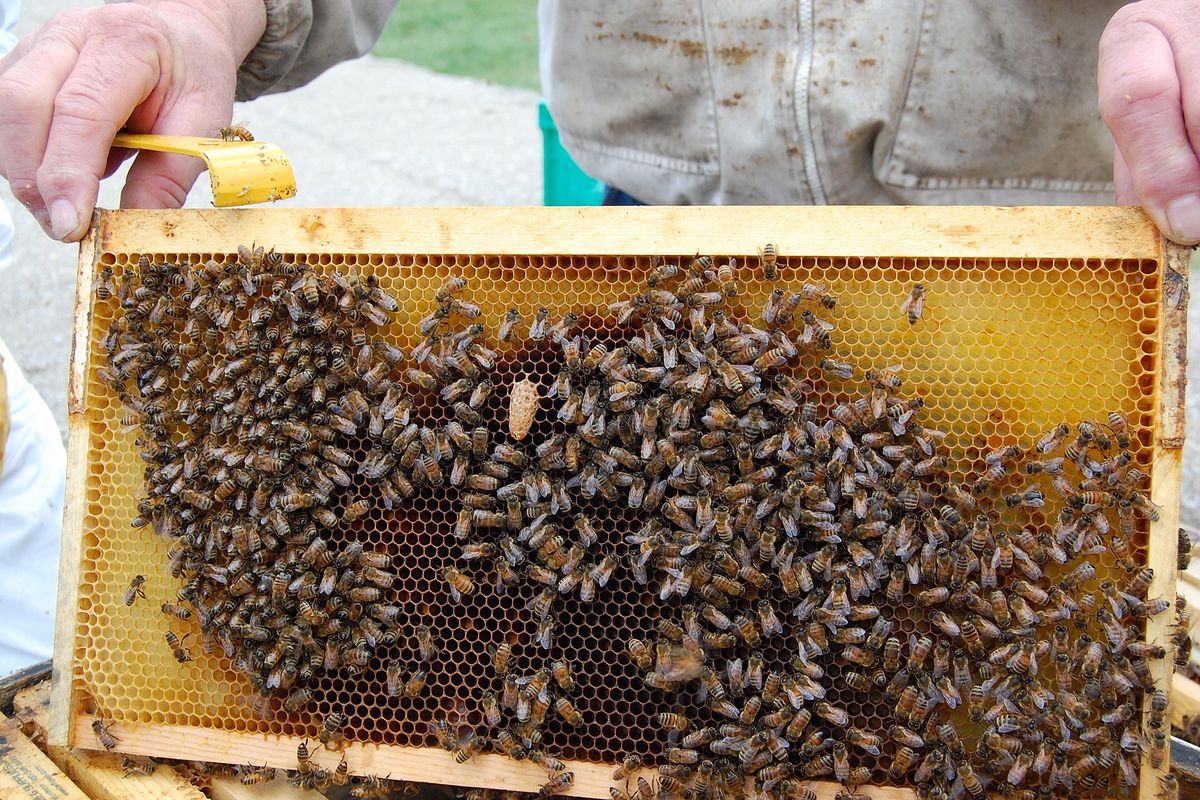Get your buzz on
Home beekeeping has environmental, personal benefits

Most of us are well aware of the honeybee’s decline. Stories of die-offs, pesticide kills and parasite infestations abound.
Reports from China speak of hundreds of workers laboring to hand-pollinate the country’s fruit industry, a result of industrial pollution and the devastation of their honeybee population.
With dozens of food-bearing plants requiring insect pollination for propagation and dwindling numbers of honeybees in the U.S., Colony Collapse Disorder has made the news. In addition, America’s infatuation with organic products and homeopathic pursuits has elevated demand for fresh produce and back-to-basics approaches in the home, free of fertilizers, pesticides and other chemicals.
Beekeeping is now looked upon as one potential cure for what ails the world. And maintaining backyard apiaries is not as far out of reach as many might think.
I entertained the idea of beekeeping for many years, though geographic instability, personal obligations and 23 years of military service hindered my ability to settle down and pursue such an endeavor. Once retired and established in north Spokane, I promptly built a home that included enough rooms to house the hordes of hungry bodies, mostly preteens, residing inside. An extensive garden was part of my supplemental food plan, and, after seeing an ad in The Spokesman-Review for beekeeping classes, I signed up.
For anyone entertaining the idea of raising bees, whether for pollination, honey production or profit, a class such as that offered by the Inland Empire Beekeeping Association is a must. The $50 spent for instruction, literature and hands-on field days will be money well spent.
Beginner beekeeping classes typically start in late winter and run through summer, ending with a celebration picnic in August for those who meet attendance and certification requirements. The graduation feast alone is worth the money.
Instruction is typically held once a month at a WSU extension office, beginning with an 8-hour class to introduce basic topics relevant to beekeeping.
These include essential equipment, honeybee types, city and county requirements, management through four seasons, disease and pest control, and honey harvesting.
Field days complement class instruction and provide hands-on work with hives maintained by beekeeping association members. Students are able to work the bees, demonstrate techniques learned and ask questions. The class fee includes a one-year membership with the association and provides access to a wealth of resources, including a website and various links for additional information and services. Additional monthly meetings are held on the second Friday of each month to promote continued education and address personal and business concerns among wannabe, novice and experienced beekeepers.
Beekeepers are a tight-knit community, and many go out of their way to make themselves available for any issue that might arise. You may find that while no two beekeepers will tell you exactly the same thing, they won’t lead you astray. Whether they’re helping a novice requesting help with a queenless hive or answering a call to help capture a neighborhood swarm, beekeepers’ primary focus remains the welfare of honeybees, which put honey in our tea, help pollinate our crops and provide a direct connection with nature.
For anyone contemplating raising bees – for honey or hobby, pollination or profit – I encourage them to take advantage of the resources and wealth of local knowledge available. Our action, or inaction, can make a difference – for us, our children and future generations.
This is your chance to save the world. What could be sweeter?